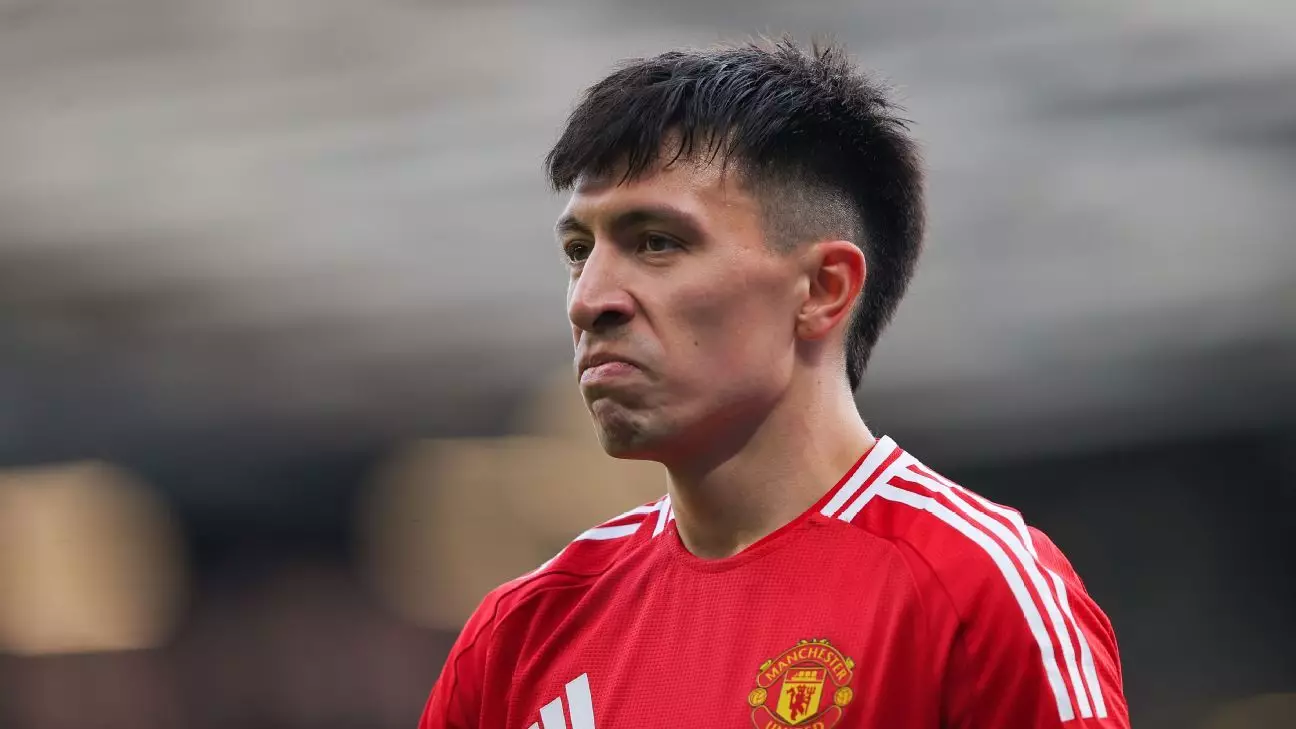The fierce world of football often breeds controversy, and nothing seems to incite debate more than the performance of high-profile players at a storied club like Manchester United. Recently, defender Lisandro Martínez found himself under scrutiny from club legend Paul Scholes, who suggested that Martínez “isn’t good enough to win the Premier League.” Such claims are not unusual given United’s struggles in the league and the subsequent frustrations among fans and pundits alike. In the face of criticism, Martínez took to social media, asserting his value while challenging the validity of Scholes’s remarks with a pointed retort.
Scholes’s comments stemmed from United’s underwhelming position in the Premier League, where they currently occupy 13th place, a staggering 14 points adrift of the coveted top four. While Scholes’s criticism isn’t entirely unfounded—especially considering the club’s current performance—it raises questions about the role of former players in assessing active professionals. Having made a career out of excellence, Scholes’s perspective may, at times, appear overly harsh, particularly when accounting for the injuries and struggles Martínez has faced, such as his serious ACL issue sustained against Crystal Palace.
Lisandro Martínez’s talent as a player has been well-recognized; his contributions to the Argentine national team, including their World Cup win, speak volumes about his capabilities. However, holding individual players to the highest standard, especially in the context of a team that is clearly in flux, seems at best premature and at worst detrimental to team morale. The weight that Scholes’s opinions carry can lead fans and players alike to unnecessarily doubt their worth in trying times. Moreover, Martínez’s response indicates a desire for solidarity rather than division, a quality that can serve as a rallying point for a struggling squad.
It’s also worth noting that Scholes’s critique did not solely target Martínez. He extended his analysis to fellow defender Matthijs de Ligt, questioning the ambition behind the current roster given the number of clubs de Ligt has already played for. Such an analysis may overlook the complexities of football—the intricate dynamics of team cohesion, the influence of management, and the tactical adjustments required amid ongoing struggles. Recognizing these aspects is essential for a more rounded assessment of any player’s capabilities, especially at a club with a rich history like Manchester United.
As United prepares to face Tottenham Hotspur, another team facing its challenges, the stakes are high for both the players and the management. This match not only represents a potential turning point for United’s season but also presents an opportunity for Martínez and his teammates to silence critics through performance rather than words. The road to recovery in the Premier League is fraught with obstacles, but individual talent, when supported by team unity and resilience, can facilitate a club’s resurgence.
The world of football is challenging, yet it thrives on the narratives created by players, pundits, and fans alike. In a time of adversity, it is the bravest who rise to the occasion, proving their critics wrong with actions on the pitch.

Leave a Reply